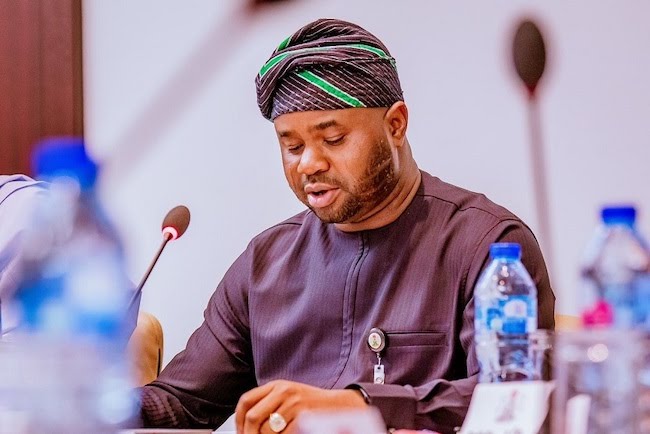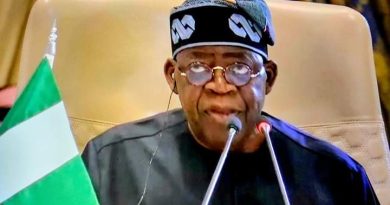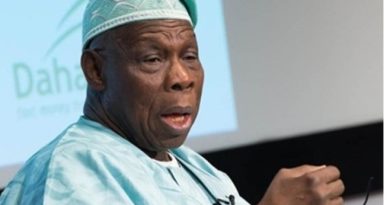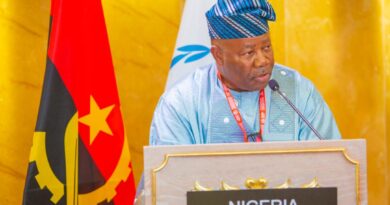The Revolution Of Tax Reform By Zacch Adedeji
By Seun Oloketuyi
In the turbulent tide of Nigeria’s economic history, few reforms have stirred both anticipation and anxiety like the 2025 tax revolution — a bold and uncompromising reimagination of the country’s fiscal framework. At the helm of this seismic shift stands Zacch Adedeji — not just a reformer, but the architect of a new tax era, quietly redrawing the lines of Nigeria’s economic destiny.
For decades, Nigeria’s tax system has been marred by inefficiency, distrust, and dysfunction. At the federal level, the Federal Inland Revenue Service (FIRS) operated as the government’s main tax collection agency, burdened by overlapping mandates, poor technological infrastructure, and a public perception of corruption and intimidation. While businesses struggled under multiple and unpredictable levies, citizens remained skeptical — and in many cases, completely disengaged from the tax ecosystem. With a tax-to-GDP ratio hovering embarrassingly around 6 percent — far below the African average — Nigeria’s fiscal foundation was both weak and unsustainable.
Then came 2025.
In what will undoubtedly be remembered as one of the boldest fiscal restructurings in the nation’s history, President Bola Tinubu, guided by the strategic brainwork of Adedeji, signed into law a comprehensive package of reforms that did not merely patch up old wounds but fundamentally rewrote the anatomy of tax administration in Nigeria. On June 26, 2025, the FIRS — once the colossus of tax collection — was legislatively dissolved. In its place emerged a new body, the Nigeria Revenue Service (NRS), designed from the ground up to reflect autonomy, accountability, and modernity.
But this reform was never just about replacing an agency. It was a complete ideological realignment. Where FIRS was a gatekeeper, the NRS is a facilitator. Where the former enforced compliance through coercion and opacity, the latter aims to cultivate a culture of voluntary participation, supported by digitization, transparency, and a renewed sense of civic duty.
Zacch Adedeji’s role in this transformation cannot be overstated. A Harvard-trained economist and former Commissioner for Finance in Oyo State, he is no stranger to structural reform. But what he has orchestrated at the federal level is nothing short of revolutionary. Under his leadership, tax reform has moved from policy abstraction to lived reality. He has not only dismantled the old machine — he has engineered a new one, and taught it how to breathe.
Adedeji’s reform ethos is anchored on equity and simplicity. Gone are the days when business owners were subjected to arbitrary taxes from overlapping authorities. The new regime harmonizes previously fragmented laws into a single, clear framework, while also establishing digital platforms that remove the need for physical interaction with tax officials — a breeding ground for corruption in the past. Under the NRS, filing and paying taxes is no longer a murky maze but a predictable, transparent process.
Yet the reforms go deeper still. For the first time, Nigeria’s tax structure acknowledges the need for citizens to have a voice. With the creation of the Tax Ombudsman and an independent Tax Appeal Tribunal, individuals and businesses now have formal channels to challenge, appeal, and resolve tax disputes without fear or undue pressure. These are not merely cosmetic additions. They represent a philosophical shift — from tax as oppression to tax as dialogue.
Unsurprisingly, not everyone welcomed the revolution. Resistance was loudest from within Nigeria’s political structure itself. In particular, governors from the northern region, notably those from the Hausa-Fulani bloc, raised concerns that the proposed reforms — especially the redistribution model for Value Added Tax (VAT) — would place their states at a disadvantage. There were debates, walkouts, and threats of constitutional confrontation. But the reforms were designed not to favour one region over another, but to bring uniformity and fairness to a system that had long been used as a political weapon.
What ultimately broke the resistance was Adedeji’s insistence on data, not drama. Backed by empirical evidence, he demonstrated how the current system penalised productivity and entrenched inefficiency, and how the new model — if embraced — would expand the national purse in a way that lifted all boats. He made it clear: this wasn’t a Lagos-centric agenda. It was a Nigerian one.
Now, the focus shifts to implementation — the Achilles heel of Nigerian policy history. Can the NRS live up to its potential? Will transparency hold, or will old habits crawl back in through new cracks? These are legitimate questions. But for the first time in a long time, there is a sense that something fundamentally different is taking shape. That the ground beneath Nigeria’s economy is no longer shifting from crisis to crisis but stabilizing into something firmer — a structure built not on oil receipts or international loans, but on the shared contribution of its own people.
It is important to remember that tax reform, no matter how technical or sweeping, is ultimately about trust. Governments tax because they must, but citizens pay because they believe — or at least hope — that what they give up will return to them in the form of roads, schools, hospitals, and peace of mind. For years, that trust was broken. Today, it is being painstakingly rebuilt — not through rhetoric, but through law, logic, and leadership.
Zacch Adedeji has not just led a reform. He has sparked a revolution. And if Nigeria sees it through — if it nurtures the culture this reform intends to plant — then perhaps the history books will look back at 2025 not just as the year Nigeria changed its tax laws, but the year Nigeria changed its destiny.




